Former Iran defense ministry advisor resurfaces after Egypt abduction

Amir Mousawi, a former Iranian diplomat and defense ministry adviser whose abduction in Egypt had earlier been confirmed by Tehran, wrote on X that he has returned to Iraq.

Amir Mousawi, a former Iranian diplomat and defense ministry adviser whose abduction in Egypt had earlier been confirmed by Tehran, wrote on X that he has returned to Iraq.
Earlier in the day, foreign ministry spokesman Esmail Baghaei confirmed that Mousawi had entered Egypt on an Iraqi passport and was abducted there.
“We heard this morning about the disappearance of Mr. Amir Mousawi in Egypt. He is not currently a diplomat. He had previously served as a cultural attaché," Baghaei told reporters in Tehran.
On Monday Mousawi’s account on X posted a message in Arabic saying "Mr. Amir Mousawi has gone missing at Egypt airport after arriving on an official invitation! His disappearance raises major questions about his safety, and there are urgent demands to reveal the truth immediately.”
The post was addressed to Egypt’s prime minister, parliament speaker and judiciary chief.
Iranian news website Didban Iran cited suggestions in regional media that he may have been abducted by agents of Israel’s Mossad in Cairo.
Mousawi -- also spelled Mousavi -- has previously been active as a Middle East analyst on Iranian state-linked channels including Al-Alam and Al-Mayadeen, as well as on Qatar’s Al Jazeera, where he frequently expressed anti-Israeli views.
He also headed the Islamic Republic’s Center for Strategic and International Studies and served as an adviser to Iran’s defense ministry.
He left Algeria in 2018 after four years as Iran’s cultural attaché there.
The Al-Monitor news site reported that Mousawi faced accusations of spreading Shi’ite ideology on behalf of Tehran. Algerian commentators and political activists had demanded his expulsion, describing his activities as “dangerous and suspicious.”
In 2017, he sparked controversy in Algeria with remarks against Anissa al-Mansali, the widow of former Algerian president Houari Boumédiène. On Facebook, Mousawi criticized her comments on Iran, saying she wished for the fall of the Islamic Republic. The post drew backlash from Algerians who rallied in support of al-Mansali.
Mousawi also drew attention last month, after telling an Iraqi outlet that Iran could build nuclear weapons within “a few hours,” saying the country had sufficient enriched uranium and infrastructure to produce up to “24 nuclear bombs.”
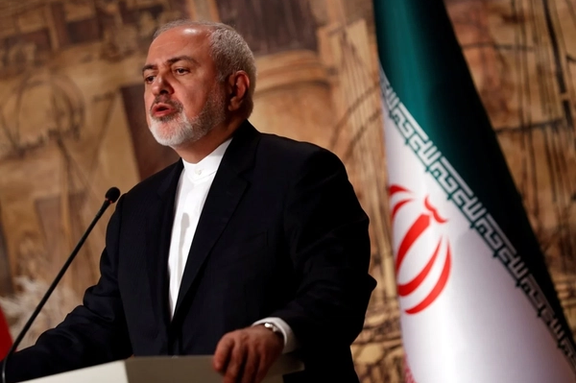
Former Iranian foreign minister Mohammad Javad Zarif on Monday called for direct talks with the United States and proposed opening stand-alone US and Iranian interest sections, saying Donald Trump could frame such a move as a legacy achievement.
“This is a good opportunity for Iran to begin its direct and comprehensive negotiations with the United States with the establishment of interests sections in Tehran and Washington,” Zarif said at the general assembly of Iran's Reform Front.
Switzerland has been representing US interests in Iran since Washington and Tehran cut ties shortly after the 1979 Islamic Revolution. Iran also has an Interests Section inside the Pakistani embassy in Washington DC.
What Zarif is proposing is a stand-alone Interests Section, similar to the one Iran currently operates in Cairo, Egypt, which protects the Islamic Republic's interests in the absence of an ambassador.
"The establishment of interests sections in the two countries could be an important achievement for the current US president, as he could then claim that he accomplished something his predecessors were unable to do," Zarif said.
Zarif said Iran must recognize the strategic differences between its adversaries.
“The difference between the United States and Israel in relation to Iran is in strategy; meaning that Israel is seeking the collapse of the system and the disintegration of Iran, but the United States wants a weakened Iran," he said. "On the other hand, Iran still has the ability to strike Israel, and at the same time the region is worried about Israel’s unilateralism.
An architect of Iran's now mostly-defunct nuclear deal, Zarif has been out of favor since he resigned as vice-president in March a few days after Supreme Leader Ali Khamenei voiced his opposition to US talks.
Last month, Khamenei reiterated his opposition to calls by Tehran moderates for direct negotiations with the United States, insisting that Washington’s hostility could not be resolved through talks and those calling for talks are short-sighted.
Snapback and domestic woes
Zarif warned that the snapback mechanism launched by European powers at the UN Security Council threatens to end the 2015 nuclear agreement permanently,
“Those who say the activation of the snapback mechanism has no economic impact do not realize that if Europe and the United Nations reinstate their sanctions, its severe negative impact will be felt not only on the macroeconomy but also directly on the daily life of the people,” Zarif said, adding that failure to act could consign the JCPOA to history within weeks.
Domestically, he called for a careful narrative that maintains Iran’s nuclear rights while avoiding a sense of retreat.
“We must inside the country produce a narrative that does not create a feeling of defeat and retreat, and at the same time stand firm on our positions and not retreat from having the right to enrichment," Zarif said.
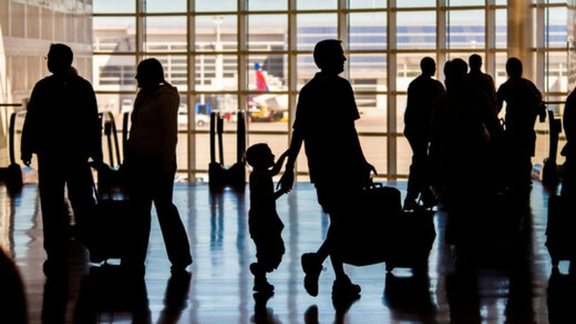
Departures from Iran are on the rise since a 12-day war with Israel in June as heightened surveillance and moribund prospects at home push some households to liquidate assets and leave.
“Before the war, most trips we handled were touristic," an immigration police officer at Tehran’s Khomeini airport told Iran International on condition of anonymity.
Since the 12-day war in June, "departures have multiplied, and many who left have not returned after a month or two — a clear sign they have decided not to come back."
The officer said it is no longer just the young. Middle-aged and even elderly people are also leaving to shield themselves from the war’s direct and indirect threats.
Pejman, 46, a freelance remote designer, said he had recently rebuilt a life in Tehran after two years in Tbilisi, Georgia, earning $3,000 a month, renting a large apartment and buying nice furniture and a car before the Israeli war.
“This war forced me to leave Tehran and ask my in-laws to sell everything and send me the proceeds,” he said. “I cannot return because the authorities may arrest me for working with companies abroad.”
He cited a widening dragnet involving arrests and executions for his fears.
Iran has arrested over 20,000 people after the war with Israel, mostly on charges of cooperating with hostile countries or spying for Israel, according to judiciary officials.
“They don't care if you are a lawful freelancer with no political ties. One of my friends was arrested and accused of espionage. They told him, ‘You are not allowed to work with US-based companies.’”
Pejman’s wife recounted a hurried liquidation of life as they knew it and flight.
“We sold our car, we sold our household goods, we sold everything. There was no way out,” she said. “With every ring of the doorbell we trembled, thinking agents had come to arrest my husband.”
The family now waits in Turkey, seeking passage to Germany.
Work strangled by outages and a broken internet
Behrouz, 51, an online interpreter in Tehran, said daily electricity blackouts and patchy internet have gutted his income for UK- and US-based language firms.
“Six months ago I could interpret five to six hours a day for migrants and patients in hospitals, courts and social services abroad,” he said. “Daily power cuts reduced that to three or four hours. Since the war, internet restrictions have piled on the outages, and I barely manage one or two hours in long sittings.”
He and his family are preparing to sell their apartment to fund an exit. “I have to go somewhere safe with stable internet,” he said. “Most of the companies I work for are US-based, and I could be accused of cooperating with what they call hostile states.”
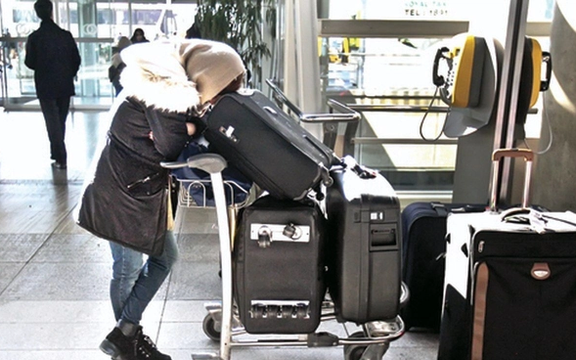
His wife outlined a reluctant plan. “We will go to a visa-free country like Turkey, Armenia, or even Qatar, and then file a case to move somewhere safe,” she said. “This is not the migration we wanted. This government forced us.”
She contrasted local wages with the risk of remote work. “They pay $200 to $300 a month here, and when my husband finally secured a remote job that pays ten times more, the clerics would not let us live,” she said.
“They restrict the internet because they fear being overthrown. They fear everyone and everything, and they sacrifice people to stay in power.”
From airport counters to flats cleared out under duress, interviewees described a decisive break rather than seasonal travel. For Pejman’s family, the fear is arrest; for Behrouz’s, a livelihood stifled by outages and a failing network.
The shock of the 12-day war has rippled far beyond the front, turning departures into open-ended exits — homes sold, schools missed, savings converted into tickets — and leaving behind a grim future that many no longer dare to reclaim.
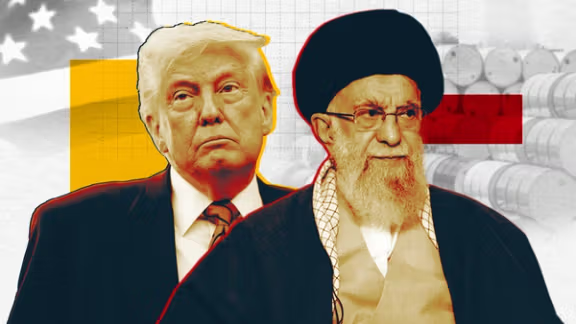
Iran has taken steps toward beginning negotiations with the United States in parallel with talks with the UN nuclear watchdog, the state-linked daily Farhikhtegan reported on Monday.
According to the paper, “decisions have been made to start negotiations with America so that, simultaneously with the start of talks, a request can be submitted to delay activation of the snapback mechanism until the negotiations are concluded.”
Farhikhtegan said the International Atomic Energy Agency (IAEA) is seeking a full return to cooperation, including the reinstatement of inspectors, the installation of monitoring cameras and “detailed information on the location of enriched materials.”
Iran, it added, has pushed back by proposing limits on “the number of inspectors, the level of oversight and their nationalities.”
The newspaper noted that European governments have tied suspension of the snapback mechanism to several conditions, “including direct negotiations with America, talks on missile activities, and signing the so-called snapback-plus.”
IAEA inspectors left Iran after parliament passed a law expelling them in response to Israeli strikes on nuclear facilities in June. Since then, only limited visits have taken place, including to monitor fuel replacement at the Bushehr nuclear power plant.
Iranian officials say talks with the agency are aimed at drafting a “new framework” for cooperation in line with the country’s law.
On Saturday, Iran’s envoy in Vienna, Reza Najafi, said a third round of discussions had been held “to draw up guidelines for implementing safeguard commitments in the new situation following the attacks.”
Foreign Minister Abbas Araghchi also expressed optimism, saying Iran was “close to reaching a framework for cooperation with the Agency.”
Farhikhtegan added that resuming cooperation could carry risks for Iran’s national interests. It wrote that allowing inspectors to return to damaged sites could expose sensitive data, recalling past accusations of information leaks.
“It is essential that frameworks for monitoring continue with this record in mind,” the paper said, adding that restrictions should be defined to “minimize misuse of IAEA reports.”
The daily concluded that uncertainty remains over whether cooperation would ultimately serve Iran’s interests. “The key question is whether starting cooperation with the Agency will bring more benefits than costs, and whether removing ambiguity over Iran’s nuclear status can delay the activation of the snapback mechanism.”
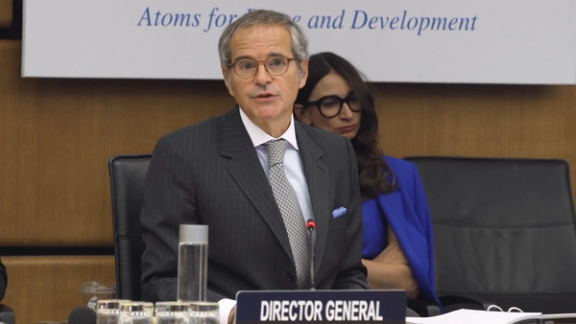
Iran’s suspension of cooperation under a new domestic law cannot override its binding international commitments, IAEA chief Rafael Grossi told governors on Monday, opening the agency’s quarterly meeting in Vienna.
“While national law may create obligations domestically, it cannot do so for the IAEA,” he added, saying that the Non-Proliferation Treaty safeguards agreement remains fully in force.
“The consideration of Iran's nuclear program has remained at the center of our efforts in the past few weeks and especially after the attacks that took place in June.”
Iran’s curbs on inspectors
The Iranian parliament passed a law on June 25 restricting the agency’s work, approved by the president on July 2.
Since then, IAEA inspectors have been denied access to enrichment facilities at Fordow, Natanz, and Isfahan, with visits confined to the Bushehr power plant after Israeli and US military strikes in June.
A confidential IAEA report last week showed Iran’s stock of uranium enriched to 60% rose nearly eight percent before the June 13 Israeli attack, reaching 440.9 kilograms.
The agency acknowledged it “lost continuity of knowledge” over inventories during that period.
Snapback sanctions and stalled talks
Following those developments, France, Germany, and the UK activated the UN sanctions snapback mechanism, prompting Iranian threats of retaliation.
Any new inspection framework must now be cleared by Iran’s Supreme National Security Council, and no agreement has yet been reached.
Grossi said technical discussions in Tehran and Vienna have made progress toward a practical arrangement to resume monitoring.
“It is my sincere hope that within the next few days, it will be possible to come to a successful conclusion,” he told governors.
Safeguards violations under scrutiny
The board is meeting against the backdrop of the IAEA’s May comprehensive report, which found Iran in breach of its safeguards obligations by concealing activities at sites including Lavisan-Shian, Marivan, Varamin, and Turquz-Abad.
The agency’s safeguards remain legally binding in Iran and must be fully implemented if wider diplomatic talks are to advance, Grossi told governors.
“The full implementation of the rights and obligations of the agency and Iran under Iran's NPT safeguards agreement is indispensable to paving the way towards real improvement in the overall situation,” he said.
With the general conference due next week and European powers pushing for a censure resolution, Grossi framed the coming days as decisive. “Always enough when there is good faith and a clear sense of responsibility,” he said, appealing for cooperation that could avoid escalation at the Security Council.
Press conference
After his remarks to the board, Grossi fielded questions in Vienna, saying he had no fixed plan to travel to Iran but hoped to do so “as part of the normalization of our contacts and relations with Iran.”
He described trust-building as gradual, citing consultations in Tehran and Vienna as well as his talks with Foreign Minister Abbas Araghchi. “It will take some time, but in my opinion, we are moving in the right direction,” he said.
He explained that legal deadlines under Iran’s safeguards agreement had already lapsed, and although the agency showed flexibility after days of attacks and damage to facilities in June, “we need to do what is necessary… it is not like we can go for weeks and months on end talking about this.”
On inspections and European snapback sanctions, Grossi stressed the agency’s independence: “We need to resume inspections because this is what we need to do, not because there is snapback.”
Still, he acknowledged that restarting work would carry a positive influence beyond the agency.
Grossi avoided political condemnations when asked about targeted killings of Iranian scientists, saying he would never endorse violence but that attribution was outside his mandate.
He confirmed that required 30-day checks on highly enriched uranium had not taken place and that there was still no clarity about the material’s location. The process of assessing Iran’s disclosures would only begin once access resumed, he added.
Grossi also dismissed remarks that IAEA data had been misused to enable attacks on facilities, calling the allegation “an absurd narrative.”
The agency, he said, had never shared confidential inspection information and was discussing additional measures to reassure Iran that safeguards data remained secure.
Obstacles to an agreement
Grossi said the main hurdles were practical -- gaining access to bomb-damaged facilities, addressing safety concerns, and navigating a new Iranian system that requires high-level political clearance.
Despite these obstacles, he said that negotiations were moving closer to agreement and voiced hope that a deal could be reached soon.
On the scope of inspections, he said that only the standard measures of the Comprehensive Safeguards Agreement were under discussion, since Iran is not applying the Additional Protocol.
He welcomed Tehran’s declared commitment to remain in the NPT but rejected calls to denounce individual states, warning that political condemnations would undercut his role.
Replying to Iran International
Responding to Iran International about a planned inspection at Isfahan nuclear site canceled by airstrikes, Grossi said he could not provide details of what was intended there.
He emphasized, however, that the agency had “no credible information about any other sites or places where enrichment activity would have been taking place before the attacks in June,” and added he expected access once conditions allowed.
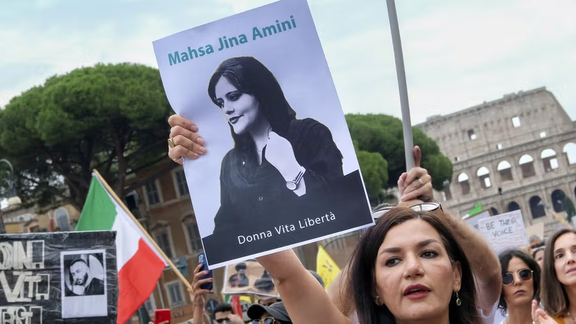
Canada-based activist Hamed Esmaeilion on Sunday urged Iranians worldwide to take part in protests marking the third anniversary of the death of Mahsa (Jina) Amini, whose killing in police custody in 2022 sparked the Woman, Life, Freedom uprising.
Esmaeilion, a human rights activist and member of the board of the Association of Families of Flight PS752 Victims, said demonstrations will be held simultaneously in more than 20 cities across the globe.
In a video posted on X, he confirmed he would join a Toronto rally on September 14, marking the third anniversary of the 2022 protests that erupted nationwide following the death of Mahsa Amini.
He said similar gatherings were being organized in Berlin, Frankfurt, Cologne, Nuremberg, Geneva, Gothenburg, London, Barcelona, Turku, Ghent, Ottawa, Montreal, Houston, San Francisco, Sydney, Wellington and Christchurch. Events are scheduled between September 13 and 16.
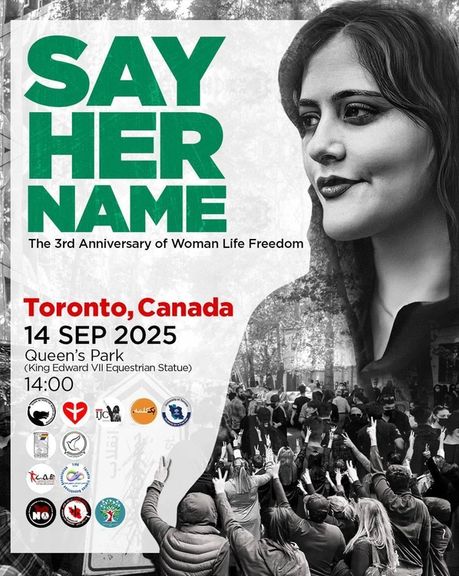
Amini, a 22-year-old Kurdish woman, was arrested by Iran’s morality police on September 13, 2022, for allegedly violating the Islamic Republic’s strict hijab law. She collapsed in custody and died two days later, igniting months of nationwide unrest that rights groups say left at least 551 people dead, including dozens of women and children.
In his video, Esmaeilion said he would also attend a marathon in Toronto in memory of political prisoners and victims of executions, naming Sharifeh Mohammadi, Varisheh Moradi and Pakhshan Azizi among those he wished to honor.
He also expressed solidarity with Kurdish teachers dismissed or exiled in recent months, prisoners on hunger strike, and Mehran Bahramian, who was executed earlier in the month.
Last year, the second anniversary of Amini’s death saw protests from Melbourne and Tokyo to European capitals, with diaspora groups chanting Woman, Life, Freedom and calling for international sanctions on Iran’s leadership. The Los Angeles City Council renamed an intersection in the city’s Iranian district to mark the anniversary.
Rights organizations, including Amnesty International, have said Iran’s crackdown on the protests amounted to crimes against humanity. A UN fact-finding mission said widespread and systemic repression, particularly against women and girls, has continued since 2022.
Esmaeilion, whose wife and daughter were killed when Iran’s Revolutionary Guards shot down a Ukrainian passenger plane in 2020, has become a prominent voice among the Iranian diaspora.
He urged Iranians abroad to use the anniversary to amplify calls for justice and to ensure, he said, that “the world does not forget.”